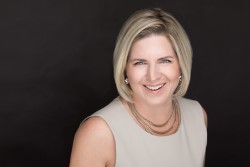It’s been said that one-fifth of the U.S. economy would come to a screeching halt without clean water.
That’s some incredible influence and if you think about it, very few other sectors have had more impact in the last 50 years on our collective social, environmental, and financial health than water. But no one is going to tell this truth for you. Clean water agencies need to be speaking up and out for themselves to highlight the services they provide and, more critically, the impact they have on our lives.
Believe it or not biosolids present an incredible opportunity for agencies to make this point. Why? Because biosolids are at the nexus of innovation, environmental protection, financial savings, and pretty much all the reasons why consumers have, unknowingly, come to rely so heavily on the work we do. But many water utilities have shied away from talking about biosolids. That’s understandable. Biosolids are complicated. Folks outside the industry may not have the exposure to, or comfort with, the science behind them.
That’s where communication can make a difference. The key approach to biosolids communication lies in three basic ideas:
- Be proactive. Be first in your community to talk about biosolids. The ones who go first get to set the baseline of understanding, upon which all others must react to. Proactive communication puts you in a position of power as it puts any detractors on the defense. The burden to disprove and refute you is on them so take the first step.
- Use simple words. If you’ve been in the sector for one, five, or 20 years, you have adopted and become quite comfortable with a lexicon that’s foreign to most of the people you serve. Studies show most consumers don’t know what a watershed is or what sustainable means, let alone thermophilic. Shoot for an 8th grade reading level so you reach everyone. It’s not about making the science sound simplistic; it’s about making it accessible to all audiences.
- Band together. You are not alone in your efforts to promote the benefits of biosolids. There are farmers, gardeners, landscapers, scientists, teachers, and others in your community who want this story told and will help you tell it. Reach out to them, get together, and formulate a plan for how you can all work together to reach more of your community with one message, through many diverse voices.
Ready to get started? Check out WEF’s new Biosolids Communication Toolkit. It will walk you through the many steps, strategies, and stories you’ll need to create communication materials that fit your needs and budget. If you get stuck, feel free to reach out with questions, svillegas@raftelis.com.


 Sam is an award-winning communications strategist with more than 25 years of experience and a mission to build appreciation for the unique role public works plays in the quality of our lives.
Sam is an award-winning communications strategist with more than 25 years of experience and a mission to build appreciation for the unique role public works plays in the quality of our lives.